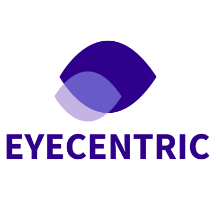ROP Developmental Stages
ROP can be separated into five stages with each indicating its severity. Stage I being moderate and Stage V is severe.
The stages are as follows:
- Stage I - Blood vessel development is mildly abnormal. Babies diagnosed with stage I ROP will have their vision eventually heal without any treatment. The eye disease does not worsen and goes away on its own.
- Stage II - Blood vessel development is moderately abnormal. Babies with stage II ROP will have their vision eventually heal without any treatment. The eye disease goes away on its own if no further development occurs.
- Stage III - Blood vessel development is significantly abnormal. The abnormal blood vessels extend into the centre of the eye instead of growing along the surface of the retina. Even without treatment, babies with stage III ROP can eventually recover and achieve normal vision.
- Treatment will be considered for children at stage III when blood vessels in the retina are seen to have grown larger and twisted, indicating that the disease has advanced. The treatment gives a high chance of preventing retinal detachment.
- Stage IV - Stage IV is characterised as partial retinal detachment. The scar produced as a result of bleeding and abnormal vessels causes traction that pulls the retina away from the wall of the eye.
- Stage V - The final stage of the disease with a completely detached retina. If the disease is not intervened, the infant may suffer from significant visual impairment and possible blindness.
Is my child at risk of ROP?
Babies who are delivered in 32 weeks or fewer and weigh less than 1.5kg are considered in the high-risk category of getting ROP. If these criteria apply, take your newborn to an ophthalmologist four to six weeks after delivery to prevent vision impairment.
Diagnostics and Treatments
Before a diagnosis can be made, your infant may need to undergo a series of tests. Tests include:
- Comprehensive screening exam - The most effective way to protect your baby's vision is undergoing a comprehensive eye exam four to six weeks after birth. To ensure a timely diagnosis, our paediatric eye physicians will examine your newborn during and after their stay in the neonatal intensive care unit (NICU).
- Optical Coherence Tomography (OCT) - This imaging process creates a three-dimensional cross-sectional image inside your infant’s eyes.
- Ultrasound - High-frequency sound waves that are used in a non-evasive and painless examination to obtain detailed photographs of your newborn’s eyes, which enables doctors to assess the eye socket.
Laser therapy and cryotherapy are two treatments proven to be the most successful in treating ROP.
Laser therapy burns away the periphery of the retina, which does not contain normal blood vessels.
In cryotherapy, a device that generates freezing temperatures briefly makes contact with areas of the eye’s surface that overlie the retina’s periphery.
These two treatments work by destroying the peripheral regions of the retina, which in turn slows or stops the growth of abnormal blood vessels. Unfortunately, the treatments may cause damage to the patient's peripheral vision. The treatments are done to protect the most vital component of human vision: the sharp, central vision necessary for daily activities such as reading, stitching and driving.
At Eyecentric, based at Bukit Tinggi Medical Centre (BTMC), you are under the care of the best trained eye professionals guiding you through your concerns and provide sound advice to maintain your vision. Schedule an appointment with our professional optometrists and ophthalmologists if you have any concerns regarding your eye health.




 – 4 (1).png)
